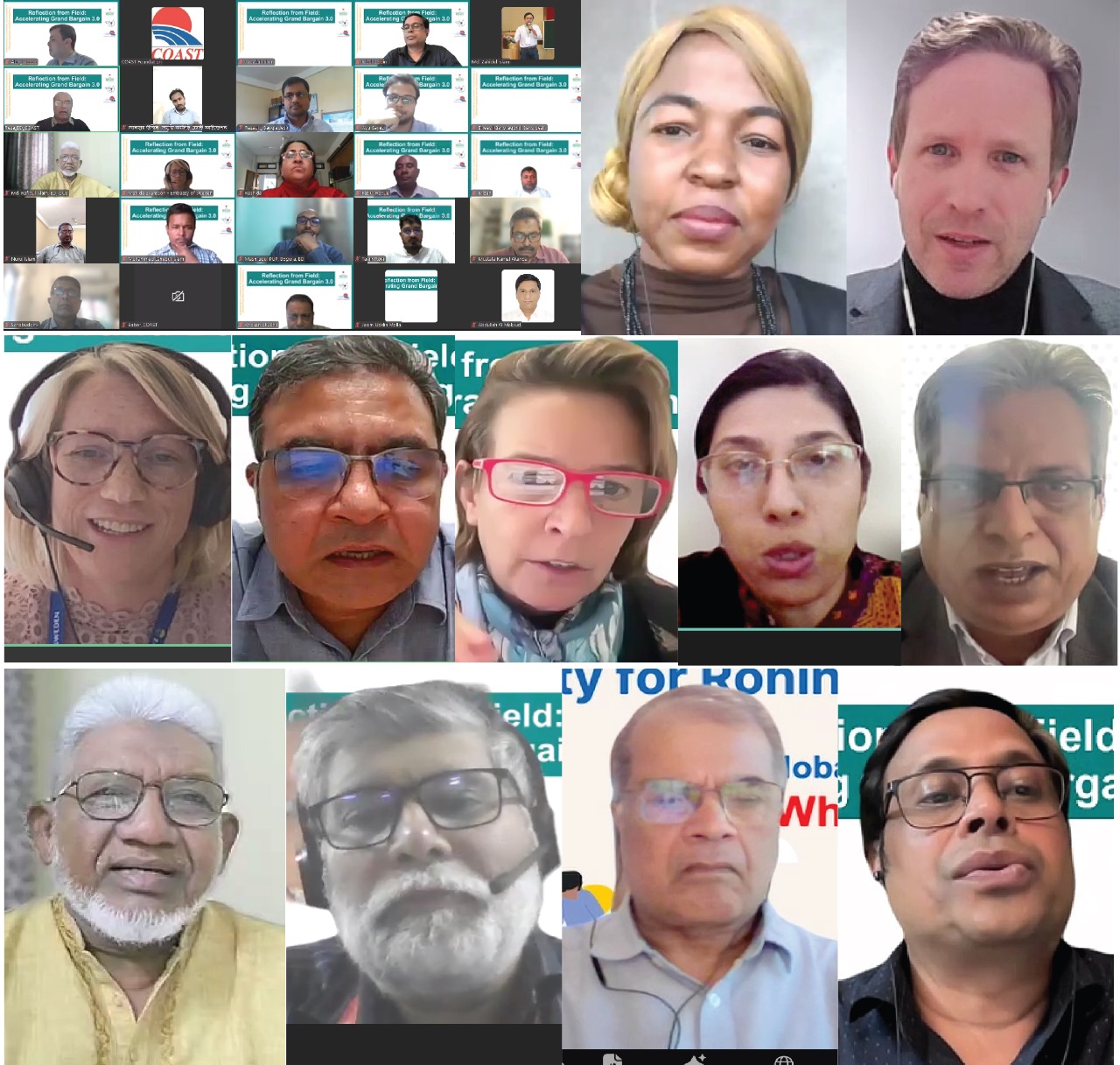Md. Iqbal Uddin
Published:2024-11-21 20:13:02 BdST
International webinar on Grand Bargain commitmentsHumanitarian actors demand donors’ and Aid organizations’ Mutual Accountability
Humanitarian actors have demanded an effective implementation of the Grand Bargain commitments at the country level.
Grand Bargain commitment was adopted in Istanbul during May 2016 in World Humanitarian Summit, the commitment has been signed by around 68 UN agencies, INGOs.
The commitments tailored with 51 indicators related to localization, accountability to the affected population and aid transparency.
Effective implementation of the Grand Bargain commitments at the country level requires a coordinated plan of UN, INGOs and local humanitarian actors.
The speakers questioned the process of some INGO branches taking local registration and claiming them as local NGO, which is against the spirit of the Grand Bargain localization commitment.
They said this during a webinar titled “Reflection from Field: Accelerating Grand Bargain 3.0” organized by COAST Foundation, BDCSO Process, and Cox’s Bazar CSO-NGO Forum today moderated by Rezaul Karim Chowdhury, Executive Director of COAST Foundation. The keynote presentation was delivered by Md. Iqbal Uddin of COAST Foundation.
Distinguished speakers included Matilda Svensson, First Secretary, Embassy of Sweden in Bangladesh; Elise Baudot, Head of Humanitarian Financing of ICVA in Switzerland; Bjorn Hofmann, Senior Advisor of Grand Bargain Secretariat in Switzerland; Sajid Raihan, Country Manager of Start Fund Bangladesh; Yumna Hasany from Community World Service Asia; Sudhansu S. Singh from Humanitarian Aid International in India; Josephine Alabi, Keen and Care Initiative in Nigeria; Reefat Bin Sattar from Save the Children in Bangladesh; Win Tun Kyi for National Reference Group from Myanmar;
In his keynote, Md. Iqbal Uddin emphasized that Grand Bargain 3.0 implementation concludes in 2026, requiring donors and aid organizations to ensure 25% direct funding to local responders with accountability and support for their leadership and capacity.
Elise Baudot highlighted ICVA’s role in fostering dialogue on quality partnerships and direct funding to empower local actors as game changers in humanitarian response.
Bjoern Hofmann shared that the Grand Bargain Secretariat is collaborating with ambassadors in Geneva to advance National Reference Groups for feedback from local actors.
Matilda Svensson reiterated Sweden’s commitment to localization, emphasizing quality funding, equitable partnerships, and local leadership.
Sajid Raihan called for co-creation in organizational development and risk-sharing, countering misconceptions about local organizations’ governance.
Yumna Hasany questioned the narrative of capacity building, advocating for mutual respect and a common definition of localization.
Sudhanshu S. Singh pointed out that 4.5% of funding passed directly to some foundations but only 0.6% reaches local actors, urging increased support for local actors’ knowledge and expertise.
Josephine Alabi stressed the importance of implementing commitments without delay and warned against equating INGO registrations with local NGOs.
Reefat Bin Sattar emphasized complementarity and equal partnerships in localization.
Additional speakers included Masuda Ratna, Rafiqul Islam, and Sheikh Asad, who shared insights on advancing localization efforts in Bangladesh.
Unauthorized use or reproduction of The Finance Today content for commercial purposes is strictly prohibited.


